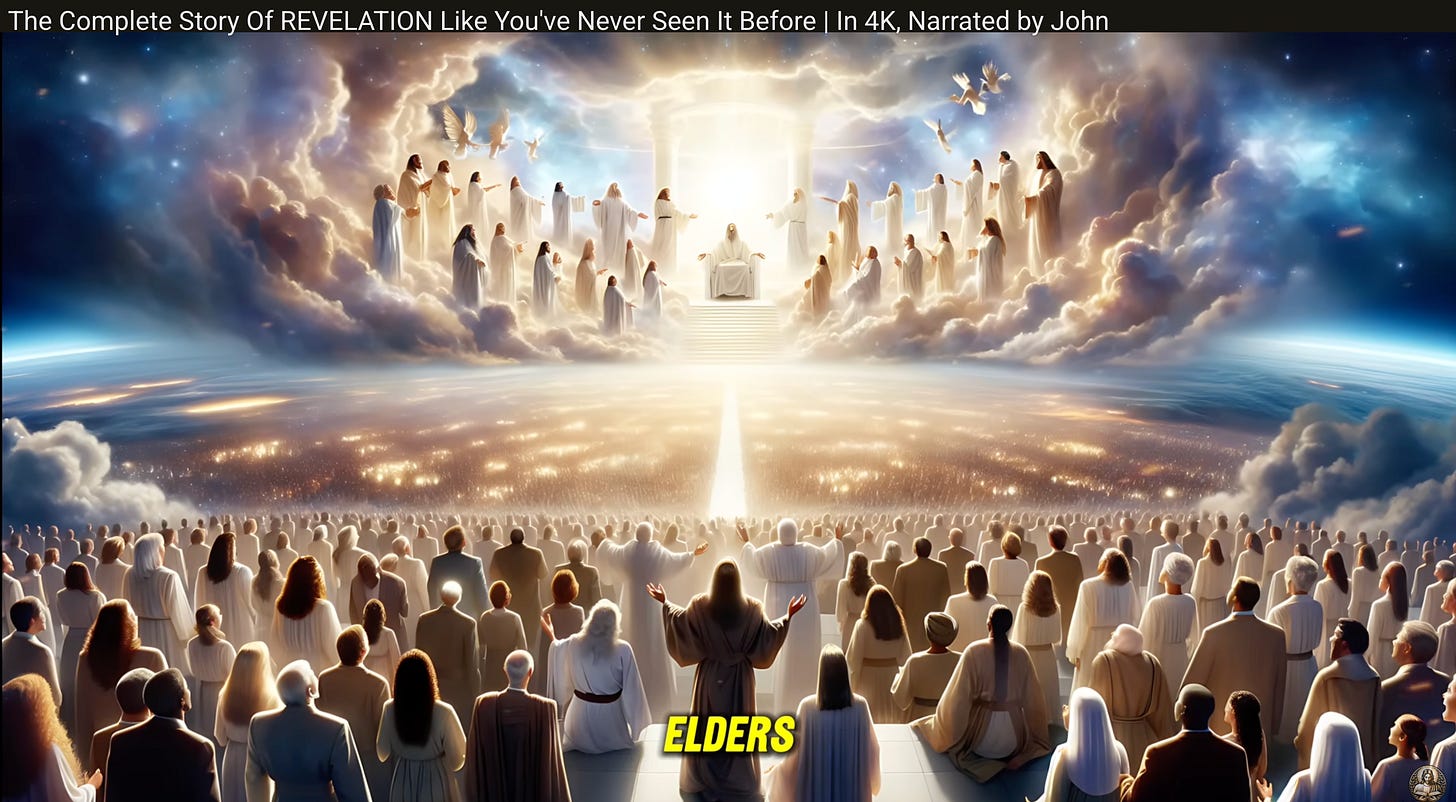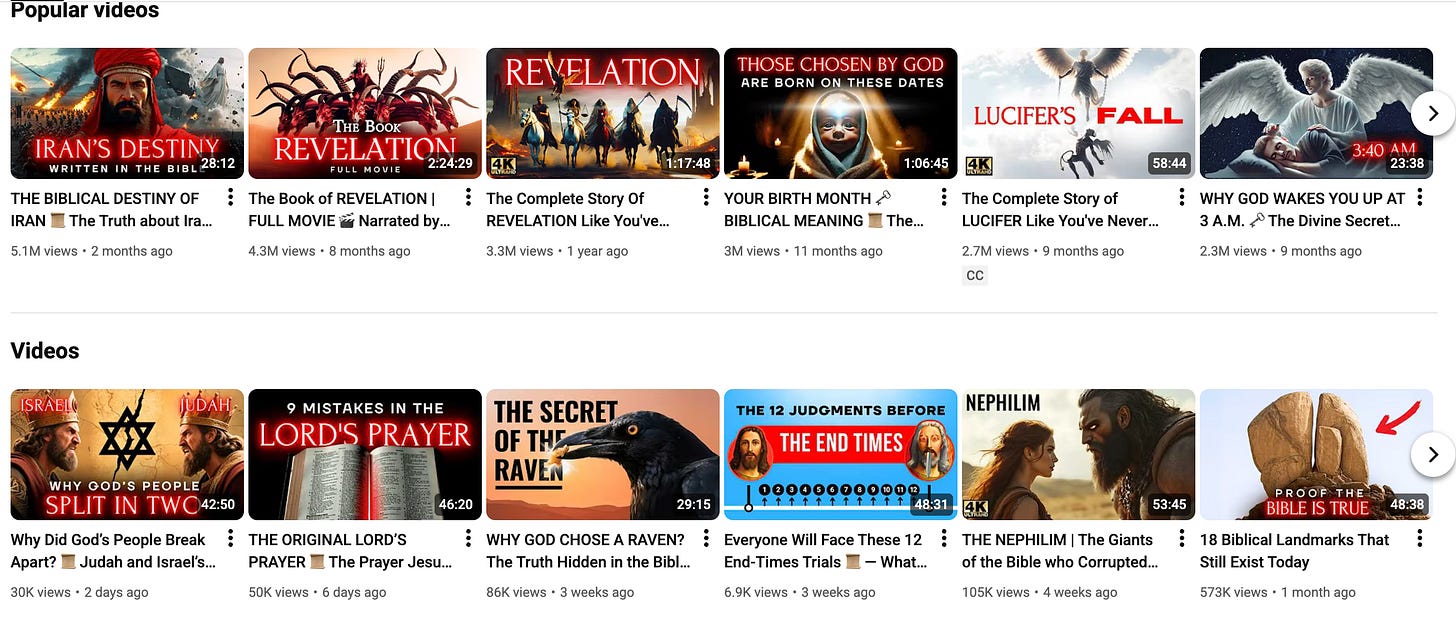AI slop is getting religious
+ The great lock in, OpenAI's first movie, automated sextortion, Jay Guapo x iShowspeed, Netflix's finsta, Threads blogging, xChat, and the doomers who insist AI will kill us all
A Christian Bible company is having a lot of success turning stories from the bible into AI slop on YouTube, according to a new report from NPR:
In a recent video posted to the AI Bible's Youtube channel, buildings crumble and terrified-looking people claw their way through the rubble. Horns blare, and an angel appears floating above the chaos. Then come monsters, including a seven-headed dragon that looks like something out of a Dungeons and Dragons rulebook.
The visuals in this eight-minute video, which depicts a section of the Book of Revelation, are entirely generated by artificial intelligence tools. At times it feels like a high-budget Hollywood movie, at times more like a scene from a video game, and at times like fantasy art. Despite the somewhat muddled visual styles, viewers seem to like what they see – it has racked up over 750,000 views in the two months since it was posted.
The AI Bible is run by Pray.com, a for-profit company that claims to have "the world's #1 app for faith and prayer." The new AI videos are being warmly received online, according to Ryan Beck, Pray's Chief Technology Officer. The viewers are mostly under 30 and skew male, though not too heavily.
"People are starting to write in on our YouTube, telling us how these stories are really transforming their life, how they're really impacting them spiritually and mentally," he said.
Almost from the start, Christianity has been interested in using technology to spread the word. Christians were among the first to pioneer the use of handwritten, bound books over scrolls, and later they used the printing press to mass-produce copies of the Bible.
Today, evangelicals in particular are at the forefront of experimenting with technology, said John Dyer, a professor at Dallas Theological Seminary and author of People of the Screen, which traces the history of Biblical software.
The evangelical movement has become a political force in recent decades, but "underneath the hood is a real kind of can-do American spirit of trying stuff," he said. To him, the AI Bible is the latest example of that willingness to embrace new ways of storytelling. To evangelicals, "if it connects people to the Bible, it's a good thing."
Lately, I’ve noticed a lot more religious AI slop in my YouTube Shorts and IG Reels algorithm. Most of the AI generated stories are about Jesus or Christianity, but I’ve also encountered a few about Islam/the Muslim faith.
Some of these Christian AI generated channels are huge. There is one called the Power of the Word that has been recommended to me multiple times that has nearly half a million followers.
I think AI is leading to a weird resurgence of spirituality. Whether people are worshipping AI itself or falling deeper into religious rabbit holes online after watching hours of Jesus slop videos, it seems to be doing something to people. This is coupled with broader trends showing that Gen Z is getting more religious.
Ice got access to spyware that can hack encrypted apps
ICE agents will soon have access to one of the world’s most sophisticated hacking tools. The government just approved ICE’s contract with Paragon Solutions, an Israeli spyware company that lets people hack into any mobile phone without the person even clicking a link or opening a document.
The new agreement between Paragon and ICE gives ICE access to the Israeli spyware platform, Graphite. Once Graphite infects your phone it can see everything you do on your phone, even stuff on encrypted apps, and you wouldn't even know it's there.
I made a whole YouTube video breaking down how it works, what that means for activists, journalists, dissidents, and how Paragon is already rolling out in other countries across the world. I also discuss how to keep yourself as safe as possible from this new tech.
What I’m reading
How to Blow Up a Planet
What happened to the future? When did we lose it, and what has taken its place? Political scientists have found a continual decline in visions of a shared. - The New York Review of Books



